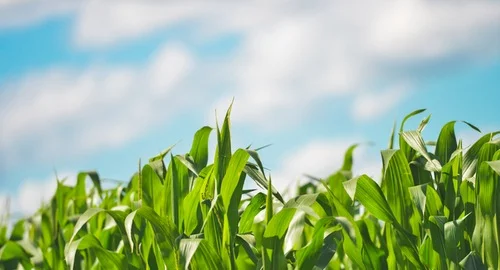Botanist: More Than Just A Plant Scientist
November 11, 2017
EasyUni Staff
What is botany?
Botany, or botanical science, is the scientific study of plants and one of the sub-disciplines of biology. You get to study almost everything about plants, from the cells and tissues and their vital processes such as respiration and photosynthesis to plants diseases and ways to cure them.
The scientists who specialise in this particular field are known as botanists. They study and do research on every single plant that you can find on this earth: algae, fungi, conifers, ferns and flowering plants. Normally, botanists choose to focus on one particular aspect of the plant and they work either on the field or in laboratories. Some of them even work in greenhouses, buildings with roof and walls made of glass to ensure there is always enough sunlight for the plants inside.
Plants play a vital role in our daily lives. They provide human beings with food and other useful things such as wood, fabric and medicine. Plants even beautify our environment and take in the carbon dioxide we exhale for photosynthesis and releasing oxygen for us. With the many wonders attributed to plants and their benefits to the ecosystem, it is not surprising that botany is considered as an extremely wide field of science.
Areas of specialisation in botanical science
Plant Anatomy: research of the features and formation of cells and tissues
Cytology: detailed research of the anatomy of a plant based on their various functions, structures and life history of plant cells
Ecology: scientific field of relationship between plants and the environment they are living in
Morphology: scientific study of macroscopic plant forms and life cycles, as well as the evolution and developments of roots, stems and leaves
Phytochemistry: scientific study focusing on the chemical side of the life cycles of plants
Food science and technology: study of different parts of plants and determine which parts can be further developed into edibles
Forestry: study of trees in the forests particularly the forest management and utilisation of forest products
Horticulture: production of cultivated or ornamental plants and also fruit and vegetable crops
Agriculture: science and management of plants for the production of food and pharmaceuticals
Plant Pathology: study of diseases that plants contract and creation of appropriate antidotes
Career prospects
As botanists are in constant contact with plants, they need to be in places surrounded with plants such as greenhouses and forest. Whereas, some botanists carry out their research in laboratories. The outcomes of their research would definitely help improve our daily lives. There are many industries that botanists can enter, such as forestry, food science and technology, and horticulture.
Botanists can work as food scientists. As food science is one of the vital areas of study in botany, many companies in the food industry definitely need a lot of food scientists to help them research and develop food.
People who obtain a degree in botany can also become landscape designers. Landscape designers use their knowledge, expertise and creativity to design beautiful gardens and recreational parks. City councils and land developers will hire landscape designers to help them develop of land plots and properties.
(Cover photo source: ask.com)
Kickstart your education in Malaysia
We'll help you find and apply for your dream university
You might be interested in...
- The Role of Education in Promoting Health Equity: Lessons from World Health Day 2024
- Navigating Credit Transfers: A Guide for Students Switching Institutions
- Explore the Benefits of Studying in Malaysia After SPM Examination
- SPM Leavers’ Guide to Malaysian Scholarships: Types, General Requirements, and Practical Tips
- Crafting a Greener Tomorrow: Empowering Change through Zero Waste and Upcycling Practices
- Malaysian Higher Education's Global Outreach: Collaborations with International Institutions
- Initiatives by Universities in Malaysia to Prepare Students for Globalization
- PHAM 2024 Takes Center Stage at Sunway University, First in Asia
- Malaysia as a Destination for Global Educational Excellence
- A Foodie’s Guide to Malaysian Campus Life







